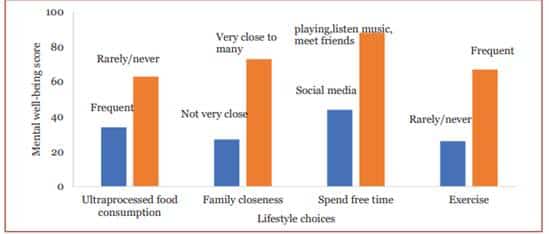Prioritizing Mental Well-Being in India

Mental well-being is crucial for navigating life’s challenges and functioning effectively in society. It encompasses our emotional, social, cognitive, and physical health. The Economic Survey 2024-25, presented in Parliament by Union Minister Nirmala Sitharaman, emphasizes the importance of mental well-being as a composite state of health. This article explores the key findings of the survey, focusing on how lifestyle choices, workplace culture, and family dynamics significantly impact mental health in India.
The Impact of Lifestyle Choices on Mental Health
The Economic Survey highlights that lifestyle choices made during childhood and youth play a vital role in determining mental well-being. It points out that poor lifestyle habits can lead to increased mental health issues, particularly among children and adolescents. The survey identifies excessive internet use and social media engagement as significant contributors to declining mental health. Citing Jonathan Haidt’s book, “The Anxious Generation,” the survey notes that the rise of the “phone-based childhood” is fundamentally altering the experience of growing up.
Moreover, the survey indicates that individuals who consume ultra-processed or junk food regularly tend to have poorer mental health outcomes. In contrast, those who maintain a balanced diet report better mental well-being. The findings suggest that unhealthy eating habits, combined with a sedentary lifestyle, can exacerbate mental health issues. Therefore, it is essential to promote healthier lifestyle choices from an early age to foster better mental health outcomes in the future.
Workplace Culture and Its Effects on Mental Well-Being
The Economic Survey underscores the importance of a positive workplace culture in enhancing mental well-being. It reveals that hostile work environments and excessive working hours can lead to significant mental health challenges. Employees who feel supported and valued are more likely to perform better and maintain a healthier mental state. Conversely, those who work in toxic environments may experience increased stress and anxiety, which can hinder productivity and overall economic growth.
The survey advocates for organizations to prioritize mental health initiatives. Implementing flexible work hours, promoting work-life balance, and fostering open communication can create a more supportive atmosphere. Additionally, companies should encourage employees to take regular breaks and engage in physical activities. By investing in a healthier workplace culture, organizations can not only improve employee well-being but also enhance their overall productivity and success.
Family Dynamics and Their Role in Mental Health
Family situations significantly influence mental well-being, as highlighted in the Economic Survey. Strong family bonds and supportive relationships can act as protective factors against mental health issues. The survey emphasizes the need for interventions at the family level to promote healthy pastimes and social interactions. Encouraging children and adolescents to spend time with family and friends, engage in outdoor activities, and limit screen time can lead to improved mental health outcomes.
The survey also points out that families should prioritize quality time together. Activities such as family dinners, game nights, and outdoor excursions can strengthen relationships and foster a sense of belonging. By investing time in building close family bonds, parents can help their children develop resilience and coping skills, which are essential for navigating life’s challenges.
The Urgent Need for Interventions
The Economic Survey stresses the urgent need for preventive strategies and interventions to address mental health issues in India. It calls for a collective effort from schools, families, and communities to create an environment that supports mental well-being. Encouraging healthy habits, promoting physical activity, and facilitating social interactions are crucial steps in this direction.
The survey concludes that prioritizing mental well-being is not just a personal responsibility but a national imperative. As India strives for economic growth, it must recognize the direct link between mental health and productivity. By placing mental well-being at the center of the economic agenda, India can harness its demographic dividend and build a healthier, more resilient future for its youth.
Observer Voice is the one stop site for National, International news, Sports, Editor’s Choice, Art/culture contents, Quotes and much more. We also cover historical contents. Historical contents includes World History, Indian History, and what happened today. The website also covers Entertainment across the India and World.

